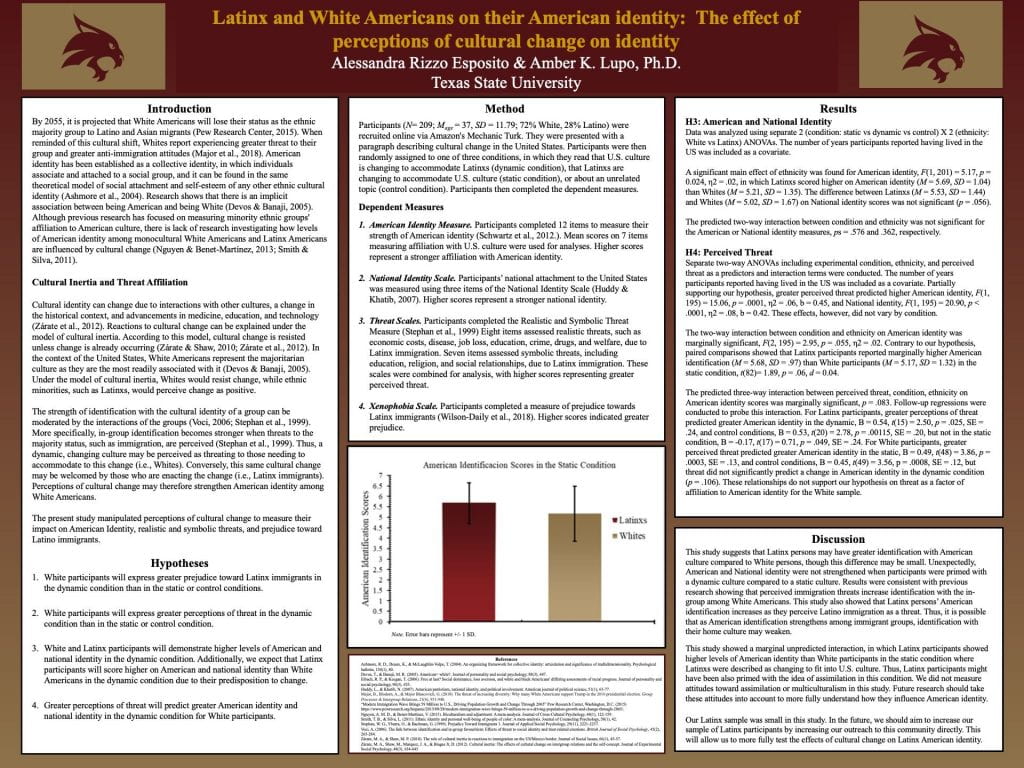Latinx and White Americans on their American identity: The effect of perceptions of cultural change on identity
Principle Author
Alessandra Rizzo Esposito
Undergraduate
Co-Author(s)
Amber K. Lupo, Ph.D.
Abstract
The purpose of the current study is to compare levels of American identity between White and Latinx Americans. This study uses the Zárate et al. (2012) cultural inertia manipulation to create three different conditions in which the perception of culture may affect the affiliation to American identity in both samples. Participants (N=209) were randomly assigned to three conditions, a static condition that suggests there is little to no change in the culture, a dynamic condition that suggests there is a tremendous change in the culture, and a control condition in which there is no suggestion with respect of cultural change. Paired comparisons showed that Latinx participants reported marginally higher American identification than White participants in the static condition. Results also pointed out that for the Latinx sample greater perceptions of threat of Latinxs predicted greater American identity in the dynamic and control conditions. Meanwhile, for White participants, greater perceived threat predicted greater American identity in the static and control conditions.

How are you defining Latinx in this study as that is A VERY wide net. Are you talking from Mexico, Central America, South America? Where? Secondly you use the word Latino when discussion immigration, are you only referring to men that identify as Latino or are you using another catch-all word?
To clarify and add to Alessandra’s response, participants self-reported their ethnicity on our demographics questionnaire. One response option available was “Hispanic or Latino”. Participants who chose this option were included as “Latino” in the study. You’re definitely right that this definition is broad and there may be important differences between sub-groups, such as voluntary vs involuntary motives for immigration. Our sample didn’t quite allow us to explore this.
I am defining Latinxs as people from, or that have ancestry from, the region of Latin America. Thus, that would include Mexico, Central, South America, and the Caribbean.
When I use the word Latino in the discussion, I was referring to all Latinx immigration not just men.
Thanks for finally talking about > Latinx and
White Americans on their American identity:
The effect of perceptions of cultural change on identity –
Psychology Digital Student Poster Showcase
2020 bandar55